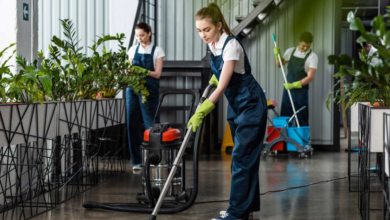
Sustainable Materials: The Case for Wooden Menu Holders
In the world of hospitality, presentation is everything. From the ambiance of the dining room to the plating of the dishes, every detail counts when it comes to creating a memorable experience for guests. One often overlooked aspect of restaurant presentation is the humble menu holder. While many establishments opt for plastic or metal options, wooden menu holders are a sustainable and stylish choice that can elevate the dining experience. In this article, we’ll explore the benefits of using wooden menu holders and why they are a smart choice for environmentally conscious restaurants.
The Importance of Sustainable Materials
As consumers become increasingly aware of the environmental impact of their choices, businesses are under pressure to adopt sustainable practices. The hospitality industry is no exception, with many restaurants looking for ways to reduce their carbon footprint and minimize waste. One way to do this is by choosing sustainable materials for restaurant supplies, such as wooden menu holders.
The Environmental Impact of Traditional Menu Holders
Plastic and metal menu holders are common choices for many restaurants, but they come with a significant environmental cost. Plastic menu holders are made from petroleum-based materials that can take hundreds of years to decompose in landfills. Additionally, the production of plastic releases harmful greenhouse gases into the atmosphere, contributing to climate change.
Metal menu holders, while more durable than plastic, also have environmental drawbacks. The mining and processing of metal ores can cause habitat destruction and water pollution, while the manufacturing process requires significant energy consumption.
The Benefits of Wooden Menu Holders
In contrast to plastic and metal, wooden menu holders are a sustainable and eco-friendly choice. Wood is a renewable resource that can be harvested responsibly from well-managed forests. When a tree is cut down, new trees can be planted in its place, ensuring a continuous supply of wood for future generations.
Wooden menu holders are also biodegradable, meaning they will naturally decompose over time without releasing harmful chemicals into the environment. This is a significant advantage over plastic menu holders, which can persist in landfills for centuries.
The Durability of Wooden Menu Holders
One common concern about wooden menu holders is their durability. Restaurant owners may worry that wood is too fragile to withstand the wear and tear of daily use. However, this is not necessarily the case.
Choosing the Right Wood
The durability of a wooden menu holder depends largely on the type of wood used. Hardwoods like oak, maple, and walnut are known for their strength and resistance to scratches and dents. These woods are also less likely to warp or crack over time, making them a reliable choice for restaurant use.
Proper Care and Maintenance
Like any restaurant supply, wooden menu holders require proper care and maintenance to ensure their longevity. Regular cleaning with a soft cloth and mild soap can help prevent stains and keep the wood looking its best. Avoiding exposure to excessive moisture and heat can also help prevent warping and cracking.
With proper care, wooden menu holders can last for years, providing a cost-effective and sustainable alternative to disposable plastic options.
The Aesthetics of Wooden Menu Holders
In addition to their environmental benefits, wooden menu holders can also enhance the aesthetics of a restaurant. Wood is a warm and inviting material that can create a cozy and welcoming atmosphere for diners.
Versatility in Design
Wooden menu holders come in a variety of styles and finishes, allowing restaurants to choose an option that complements their decor. From rustic and weathered to sleek and modern, there is a wooden menu holder to suit every aesthetic.
Some popular styles of wooden menu holders include:
- Classic wooden clipboard-style holders
- Minimalist wooden frames
- Rustic wooden boards with metal clips
- Elegant wooden folios with leather or fabric accents
FOR MORE INFORMATION CLICK HERE : scuba diving dubai
Customization Options
Another advantage of wooden menu holders is the ability to customize them to fit a restaurant’s unique brand identity. Many manufacturers offer laser engraving or printing services, allowing restaurants to add their logo or other designs directly onto the wood.
Customized wooden menu holders can create a cohesive and professional look for a restaurant, reinforcing its brand and making a lasting impression on diners.
The Cost-Effectiveness of Wooden Menu Holders
While wooden menu holders may have a higher upfront cost than plastic options, they can be a cost-effective choice in the long run.
Durability and Longevity
As mentioned earlier, hardwood menu holders are built to last. With proper care, they can withstand years of daily use without needing to be replaced. This durability means that restaurants can avoid the recurring costs of replacing flimsy plastic menu holders that crack or break easily.
Reduced Waste and Disposal Costs
Using wooden menu holders can also help restaurants reduce their waste and disposal costs. Plastic menu holders that are no longer usable must be disposed of in the trash, contributing to the growing problem of plastic waste in landfills. In contrast, wooden menu holders can be repurposed or recycled at the end of their lifespan, minimizing waste and reducing disposal costs for the restaurant.
Supporting Local Artisans and Economies
Choosing wooden menu holders can also have social and economic benefits beyond the restaurant itself.
Supporting Local Woodworkers
Many wooden menu holders are crafted by local artisans and woodworkers. By choosing these products, restaurants can support small businesses and skilled craftspeople in their communities. This not only helps sustain traditional woodworking techniques but also keeps money circulating within the local economy.
Promoting Sustainable Forestry Practices
When sourcing wooden menu holders, restaurants can look for products that are certified by organizations like the Forest Stewardship Council (FSC). These certifications ensure that the wood used in the menu holders comes from responsibly managed forests that prioritize sustainability and conservation.
By supporting sustainable forestry practices, restaurants can play a role in protecting forests and the ecosystems they support.
Conclusion
In the quest for sustainability in the hospitality industry, wooden menu holders are a smart and stylish choice. They offer numerous environmental benefits over plastic and metal options, including renewability, biodegradability, and reduced waste. Wooden menu holders are also durable, versatile, and customizable, allowing restaurants to create a unique and inviting dining experience for their guests.
By choosing wooden menu holders, restaurants can not only reduce their environmental impact but also support local artisans and sustainable forestry practices. As consumer demand for eco-friendly products continues to grow, investing in sustainable materials like wooden menu holders is a wise choice for any restaurant looking to stay ahead of the curve.




